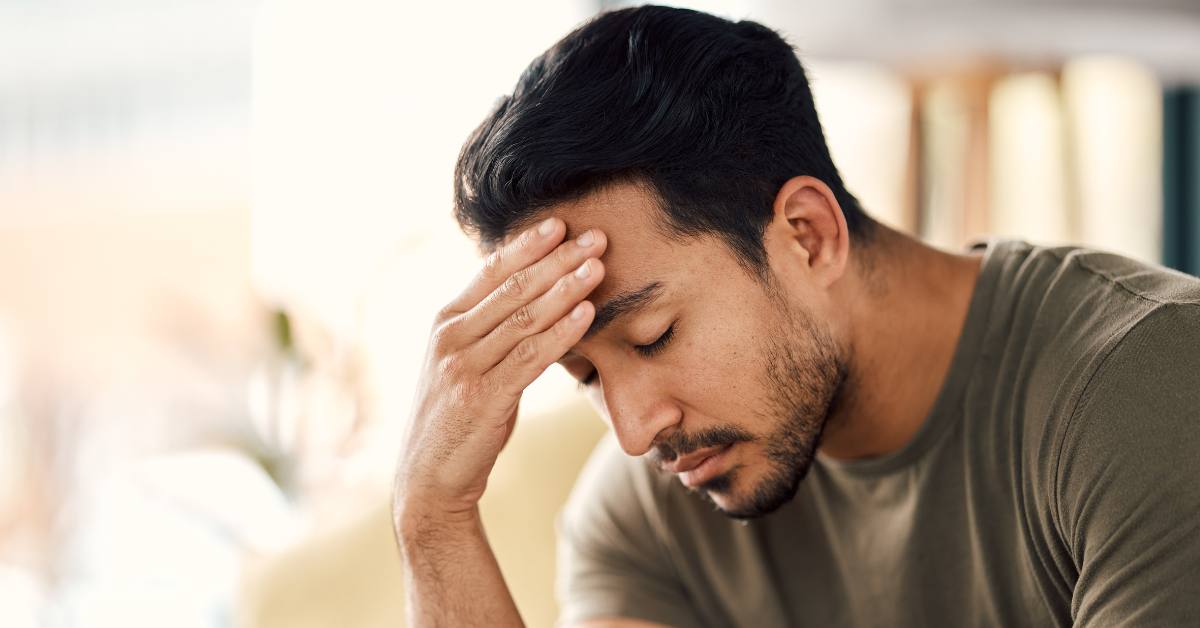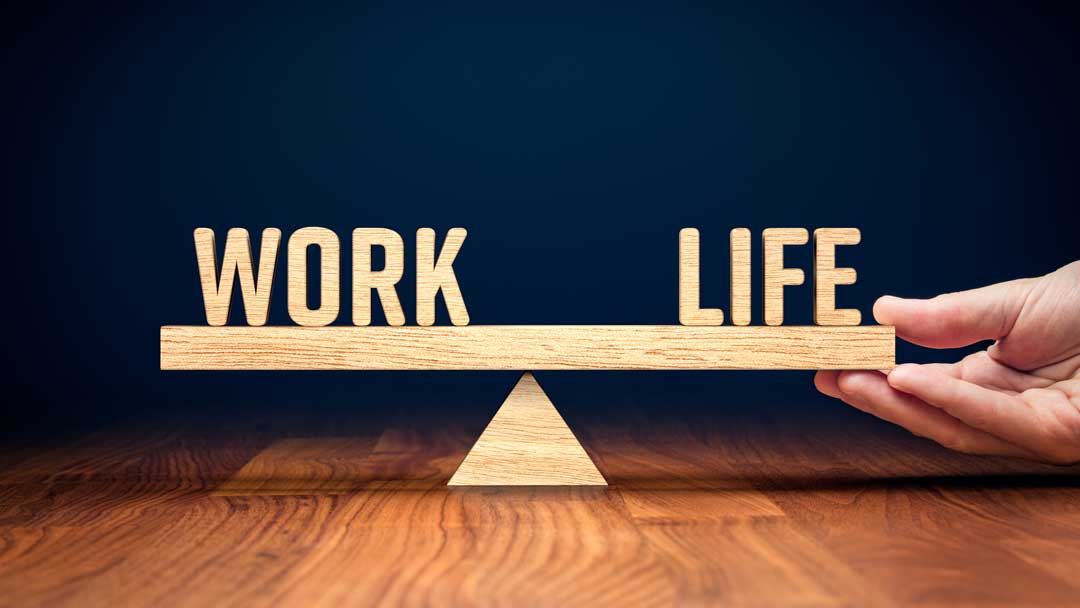Think about your mental health like your dental health. You take the time every day to brush and (hopefully) floss your teeth because that’s how you keep your teeth healthy. Even with maintenance, seeing a dentist every 6 to 12 months doesn’t hurt. It’s the same with your mental health. It doesn’t hurt to visit a professional every once in a while to see how you’re doing.
It’s normal to experience a wide range of emotions, including negative ones. Everyone feels sad or anxious from time to time. There is, however, a big difference between feeling anxious and having an anxiety disorder. The same goes for feeling sad and having a mood disorder such as major depressive disorder.
Mental health is best viewed on a continuum. It’s not something you have, or you don’t have. It’s something to work toward, and there are many different things that people can do on their own, with others, and with the help of professionals that can help them improve their health and wellness.
When do you need to be concerned?
If you are noticing that anxiety or depression is causing you a lot of distress or interfering with your quality of life, then it is time to seek help.
Sometimes, people manage painful feelings by avoiding situations, objects or people. In these cases, it might be a concerned person, such as a loved one, an employer or a teacher, that expresses their concern to you. This is also a clue that it might be time to take action.
Anxiety and depression can start to feel like they are permanent parts of our lives. What starts as stress or burnout can lead to feeling sad, distressed, flat or empty nearly all of the time. Some of us feel like we have been worrying excessively for our whole lives. My general advice to people is, “When in doubt, check it out.” Your family doctor or a qualified mental health professional can help guide you.
While problems with anxiety and depression are common among Canadians, stigma, misunderstanding and lack of direction about how to become well can hold people back. Keep in mind that taking care of your mental health is a sign of strength.
What’s the difference between anxiety and depression?

There can be an overlap between symptoms of anxiety and mood problems, making it hard to understand one’s experience. As well, many people experience problems with both anxiety and depression. For many, they go hand-in-hand. Fortunately, scientific research shows that the techniques and treatments used to combat anxiety and depression most effectively are similar and can overlap.
Occasional anxiety and worry about things such as health, money, or family problems are part of life. But for some people, the anxiety does not go away, gets worse over time, and can interfere with daily activities such as work, school, and social relationships. Anxiety disorders involve more than temporary worry or fear.
Anxiety disorders all have features of excessive, persistent fear or anxiety along with related changes in behaviour. The anxiety disorders differ from each other in the types of situations or objects that drive the fear, anxiety, worry and other anxious thoughts and avoidance behaviour. Panic, generalized anxiety, social anxiety, and phobias are common types of anxiety disorders.
Signs and symptoms of anxiety
The most common signs and symptoms of mild to moderate anxiety are:
- Excessive worry, fear or dread
- Feeling on-edge, restless, wound-up
- Difficulty and concentrating
- Feeling sick to your stomach
- Tense muscles
- Panic attacks or feeling out of control
- Becoming less social
- Difficulty sleeping
- Avoidance
Depression is more than just a temporary mood dip or case of the blues. Depression is a type of mood disorder more formally known as Major Depressive Disorder or clinical depression. It usually puts you in a ‘low,’ flat or irritated mood that does not go away or takes away your interest and pleasure in life.
It can sap your energy and mess up your appetite and sleep. You might feel hopeless, have low self-esteem, and pull away from friends and social situations. Some people feel that life is no longer worth living and have thoughts of self-harm or suicide. Depression is not something people can easily “snap out of,” but there are effective treatments.
Signs and symptoms of depression
The most common signs and symptoms of mild to moderate depression are:
- Low self-esteem
- Less interest in things you used to like
- Becoming less social
- Uncontrollable crying
- Irritability
- Difficulty making decisions
- Tired even after sleeping
- Unexplained aches and pains
- Change in appetite (eating more or less than normal)
- Trouble remembering things
Does having these symptoms mean you have anxiety or depression?
To help understand if you have mild to moderate depression or anxiety, you need to pay attention to how intense your symptoms are, how often you feel them, and if they are getting in the way of you living your life to the fullest.
For both anxiety and depression, sometimes these changes are really noticeable. You’ll immediately recognize that you don’t feel like yourself, or people will ask, ‘are you ok?’
These symptoms can also sneak up on you and slowly build—like a snowball. That’s why it’s important to regularly check in with yourself and give yourself time to honestly reflect on how you’re feeling. There are many reasons for stress in the world today. And we know that these external stresses can trigger both anxiety and depression.
Remember that ‘negative’ emotions aren’t unhealthy or all bad. Feeling sad, afraid or angry is often an appropriate emotional response to a situation. It’s when the emotions are out of proportion to the situation and begin to take over your life or become your dominant way of feeling that action is needed.
Tips for dealing with anxiety and depression
The essential thing to know is that there are help and treatments that can help both anxiety and depression. You are not alone.
It’s also true that there isn’t a one-size-fits-all treatment or action plan for depression or anxiety, or any mental health issue. You may have to try a few different paths before you find the one that works for you.
Educate yourself
A good starting point is learning. Find out everything you can about anxiety and depression. The fact that you’re reading this is a great step, no matter where you are in your mental health journey.
Take care of your physical health
If you think you have depression or anxiety, try to:
- Exercise regularly
- Eat a nutritious, well-balanced diet
- Get out in nature
- Connect with a good friend
Check in with yourself
Just like you’d check in on your best friend, make sure you check in with yourself. Take the time to reflect on how you’re feeling and take care of yourself—eat healthy, exercise, hang out with friends, and do the hobbies you enjoy.
Start small, and don’t be too hard on yourself. And, if you need additional support, check in with a family doctor or mental health professional. If you are not ready to talk to a professional, consider reaching out to a trusted friend or family member. Sometimes that’s all it takes to start down a path toward a happier, healthier life.
Speak to a professional
Speaking to a family doctor or psychologist is important if you feel you may have depression or anxiety. Often it’s difficult, especially with depression, to find the motivation to make lifestyle changes. Trained, licensed mental health professionals can help you understand how and why you’re feeling this way and give you personalized advice to help you. Sometimes sharing and having someone listen to how you’re feeling can be a big help.
How can you help someone else who is suffering from anxiety or depression?

The best thing you can do for someone that you think may be struggling with depression or anxiety is just to start a conversation. Check in on them. Let them know you’re there and in their corner.
You can also share healthy habits. Ask to go for a walk outside, share a meal, or try to connect with them through a fun or low-key activity. Listening, asking questions and sharing stories all help let someone suffering know you understand and that they’re not alone.
If you or someone you know may be struggling with suicidal thoughts, you can call the Canada Suicide Prevention Service at +1 (833) 456-4566 any time, day or night. If it’s an emergency, please call 911.

No-Cost Counselling
Access three virtual counselling sessions at no cost through TELUS Health MyCare™. Available to men in BC, AB, ON and QC without extended health benefits.



Very helpful article.
Beautiful, this article helpt me understand what I’m going through. Thank you so much for sharing.
Thank you so much, doctor, for educating me about the topic. This article is very deep and insightful. Thank you for clarifying the difference in signs and symptoms between anxiety and depression.
The activities you have shared to help someone dealing with anxiety and depression will be helpful.